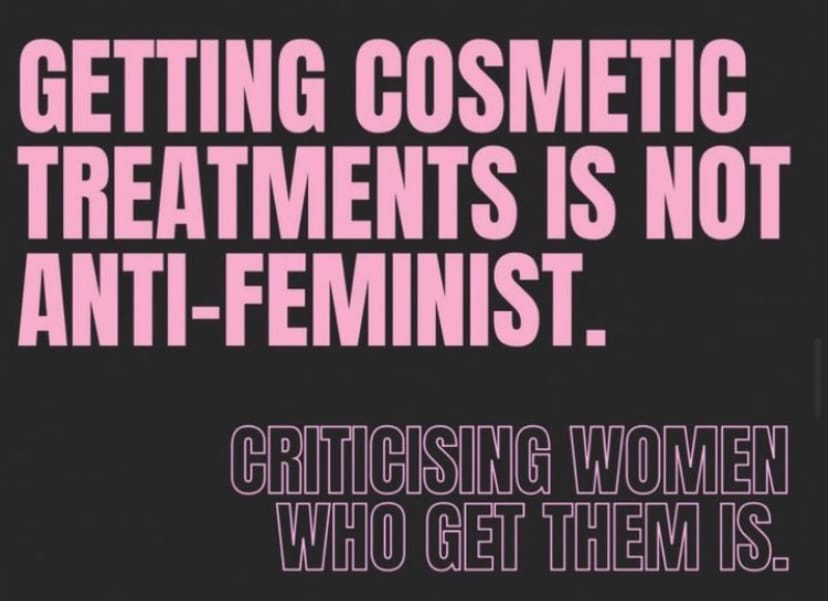Critique: The Choice of Feminism

By Aiesha Akenzua, LLB Law
As women, our individual choices do not and cannot exist in a vacuum, and the belief that they do is contradictory to the purpose of feminism and as a result, is detrimental to female solidarity.
It should go without saying that feminism should not be defined by the choices made by the individual woman. Nor is an act intrinsically feminist because a woman chose to perform it, and no, ‘empowerment’ doesn’t inherently lie in whether or not a woman chooses to shave her legs, and it lacks introspect to believe so. The circulation of choice feminism on social media has seen a rise in discourse and, in turn, a rise in the disengagement with feminism amongst teenage girls. It is without a doubt that self-proclaimed ‘choice feminists’ have not acknowledged how damaging the doctrine of choice feminism is for women existing in patriarchal societies. As women, our individual choices do not and cannot exist in a vacuum, and the belief that they do is contradictory to the purpose of feminism and as a result, is detrimental to female solidarity.
First and foremost, the core purpose of feminism is achieving total political, economic and social equity for women worldwide, through the liberation from, and decimation of, the patriarchy and the ideals it entrenches in society. Such as the patriarchal belief of male-centredness maintaining the role of a woman as subservient to those of a man. It should go without saying that choice feminism removes the lens of focus from achieving equity, in a deflective and pathetic fashion. When we start using feminism as a tool for supporting the choices of women ‘just because’, any criticism will simply become anti-feminist. This is not to say that we shouldn’t value the privilege many women, especially those residing in the West, have of making their own choices, but that is exactly my point; choice is a privilege; a privilege that many women do not have.
This brings us to my main gripe with choice when feminism, which is that it fails to understand that individual choice is a liberty that many women will never possess. It seems counterproductive to put so much importance on the act of individual choices without acknowledging the importance of having said choices. Self-evidently, ‘choice-feminists’ disregard the issue of internalised misogyny, and this is dangerous. Realising you have the autonomy to make choices at 22 does not change the fact that as women we are susceptible to internalised misogyny, nor does it change the fact that many ‘feminist’ choices can reflect this.
Take, for example, a tweet I recently saw that reads: “Being able to play dumb, act soft, & wear a pink bow IF YOU WANT TO, is feminism. Feminism is about letting women be what they want. If some women LIKE the bimbo girly thing (which some men love and expect anyways) that’s her prerogative.” Conflating feminism with the wants of the individual woman is what leads to this reasoning, but it is also a result of the refusal to look inwards. If feminism is about what women want, why does it matter that some men approve of the ‘bimbo girly’ lifestyle? Does the male approval validate this want that women have?
This tweet stands as a clear example of my point; choice feminists will jump through mental hoops to justify their actions rooted in internalised misogyny. What’s more, conforming to patriarchal ideals is very much not feminist, no matter how much you enjoy it.
This is why it is redundant to claim any choice made by a woman is a feminist choice, it takes away from the conversation and shields us from facing the real problem. In the end, and to the dismay of choice feminists, feminism isn’t meant to be this beautiful tool simply used to validate self-gratifying choices. Given that, to properly liberate our minds we need to reflect on the nature of our actions. This means dissecting the motivations behind concepts such as the rise of women promoting the ‘trad-wife’ lifestyle for example. As a worrying amount of young girls on social media have started to commit to choice feminism, the differentiation between individual choices and feminism should be addressed. We will only see progress once we start asking ourselves how our personal actions contribute to the feminist cause, and as a whole, our liberation.



